Parents dream to see their children an active participant in the social activities which promotes their well being. Shyness keeps your child dull and away from merging with the people and friends.
It is very important to diagnose any problems that are associated with the behavior of the child. It is difficult to fix the things when they become part of your child. Shyness may impact many behaviors and development in your child. This may push your child back in the academics. These kids find difficulty in utilizing their skills to the maximum extent.
This article helps you deal with the shyness in your child.
Shyness In Child: Types
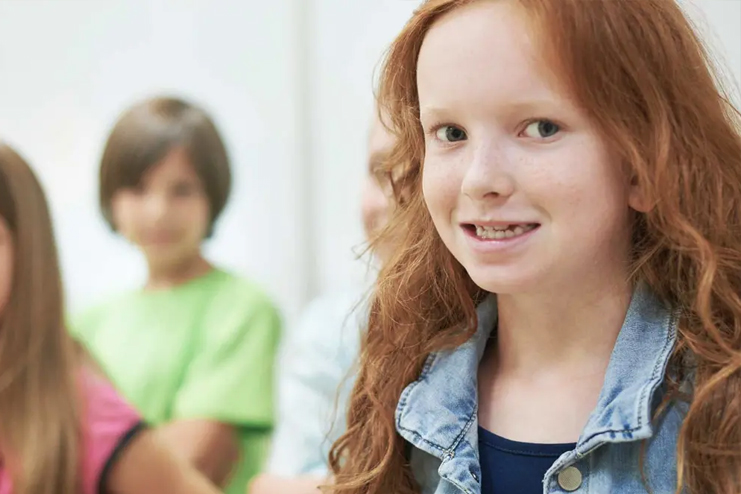
Conceptually fear and shyness are similar. Shyness hinders your child from the unfamiliar situations such as meeting a new person or speaking in front of many people. They show interest to watch the things sidelines instead of joining.
Shyness speaks more in the kids, it can be social anxiety, lack of self confidence or preference to spend more time observing instead of participating. It is common that children cling to their parents in social situations. School age children prefer to sit in the back bench and observe the activities performed by other students. They find difficulty in making the new friends and participating in the new activities.
Shyness may vary from child to child in strength. Some children may feel shy for sometime in new situations and some others continue this behaviour till the end of the party.
An important point to consider before you deal with the shyness is that it may come in various forms:
A. Immature Shy Kids: These kids usually lack the social skills and have fear to join in the social events and occasions. They have very few friends and do not like to mingle with the people around. These kids have their own world and do not prefer to have company with others.
B. Agreeable shy kids: These kids are known to open up once they find the comfortable environment. Though these kids do not initiate the conversation, they respond warmly when the peers approach them.
C. Aggressive Shy kids: These kids struggle to develop the peer relationship. Their aggressive behavior makes them to get rejected, excluded, and bullied by their friends.
What causes child to be shy?
Here are a few causes of shyness in child:
1. Low self esteem and self confidence:
Low self esteem makes the kids unsure of themselves. It makes your kids feel unsecure and binds their ability to do the things well.
There is a very thin line between self confidence and self esteem. Self confidence may vary from the situations. For example some kids have low confidence in the subjects which they do not like or feel difficult. Low self esteem on the other hand makes your kid less active for every situation.
2. Family environment:
Some kids are habituated to spend most of their time alone. This happens when they have less interaction with their parents and other family members. Some other kids stay from one of their parents because of divorce. Less parent interaction is one of the reasons for the child to develop shyness.
Authoritarian and overprotective parents are likely to develop shyness in their children.
3. Conflicts and avoidance of emotions:
Studies suggest that early stages of shyness results from conflicts and avoidance of emotions. Children who grows in the conflicting environment are likely to display shyness. Conflicting environment and the avoidance of emotions are interlinked with each other on the other hand.
The emotions of the children who live in the conflicting environment are rarely to be cared.
4. Criticism:
Children who are subjected to harsh criticism by the significant people in their lives including parents, siblings, close family members and friends may develop shyness.
5. Persistent Comparison:
Children who are pushed beyond their capabilities and strengths may develop fear of failure that make to become shy.
6. Learned behavior:
Children are likely to adopt most of their behaviors and habits from the adults especially parents. Shy parents teach their kids shyness indirectly.
7. Genetics:
Inherited genetics greatly affects the personality build up of a person. Genes play a major role in the behavioral development.
Impact of shyness on development of child:
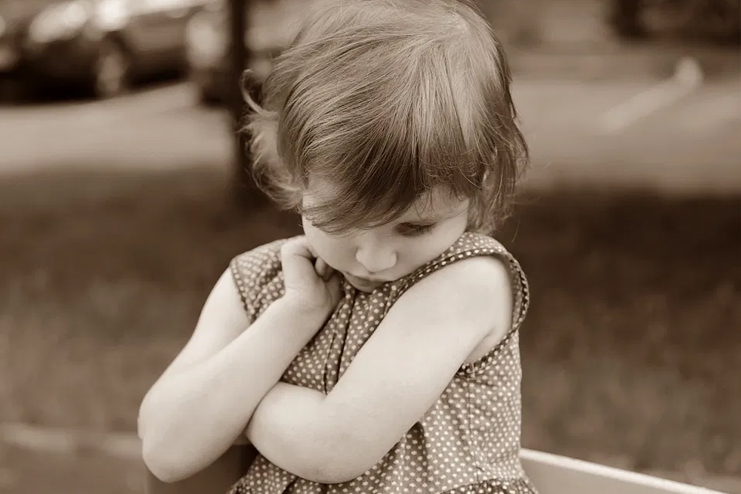
Shyness may have adverse impact on the development of the child.
1. Trouble developing social skills: Children who are not allowed to experience the things may have trouble in building their social skills. If the shyness continues to be a persistent pattern of the emotional behavior, It is likely to pose serious effects on the child’s social and personal adjustments.
Lack of social skills make the child to experience the following:
• Unable to understand the sarcasm.
• Share the information in inappropriate ways
• A poor listener
• They do not wait for their turn to talk
• Withdraw their conversation with the other kids.
• They find difficulty in connecting with the teachers, family members and the people in the community.
2. Mental health issues: Anxiety and depression are the common psychological health issues that arise from persistent shyness.
Studies show that Fifty percent of the mental illness in children begins at the age of 14 and for the three quarters at the age of 24.
Sleep or appetite changes, mood swings, illogical thinking and the feeling of the disconnected are the few signs of mental illness in the children.
3. Low Success rate: Persistent shyness may lead to avoidant of skills and personality. These children avoid socialization. This makes their success and potential to fall below the potential level.
4. Inferior complexity: It is a result of shyness or anxiety. It paralyzes the children and makes them less motivated. Inferior complexity may also lead to insecurity and low self esteem. Children with this attitude give up the things easily.
5. Lack of problem solving skills: Shy children have less thinking and lack of ability for problem solving. These skills play a key role in managing the life. This may in turn make the children poor in educational setting.
6. Appearance: Shyness can greatly affect the appearance of the child. Shy children may subject to embarrassing physical effects such as blushing, stammering, and trembling.
7. Emotionally sensitive: Shy children are more sensitive to the changes in their routine life, relations and they can not resist the changes in the family environment.
Activities for the shy Children:

Shy children with or without the learning difficulties may have some difficulty in making the friends than their peers. It makes children to take less or no part in the school activities.
Here are a few activities to help a child with learning disabilities:
1) Involve your child in doing some crafts:
Encourage your child to do some crafts in groups. Arrange the materials that are required for the crafts in the center of the workspace. This will teach children how to cope with the other kids. Children will learn to play comfortably with other kids, they learn to make eye contact and share the things.
Apart from the mental wellness the crafts help the kids to improve the coordination and the fine motor skills. It makes the kids more creative and productive.
2) Encourage your kid to play outdoor games:
Allow your child to play some outdoor games initially that require limited contact with the others. Start with the games like catch the compliment, dodgeball or kickball. When your children become more comfortable add the games to overcome shyness like board games and basket ball that require more interaction and proximity.
3) Plan weekend family activities:
Family will have most significant place in the life of the kid. Right from their very first need children need the support of the family. Family time is more important for the kids for the mental wellness and emotional wellbeing. It helps the child to build the self confidence. It results in the less violence.
It helps all the family members to build some memories on fun, laughter, and togetherness. Kids who used to spend quality time with their parents are good at academics.
4) Make your child to learn dance:
Dance is the best activity for the kids with shyness. It helps the kids to shape and mold their posture. It teaches your kids body language. Body language in turn helps your kid to move freely in the social situations. Dance is a great tool for the kids to express their views and feelings in the form of some gestures.
Dance encourages your kids to remain active and it promotes their role in social activities which enhances their interaction with their peers.
5) Make your kid to exercise with you:
Exercise in the morning with your kid to promote your physical fitness and well being. This is a great opportunity to spend some quality time with your kids.
This helps your kids to connect more with you and share the things more. Encourage your child to do some warm up exercises. It helps the kids to increase the concentration and the academic scores. It builds stronger heart, bones and healthier muscles.
6) Gardening:
Gardening is one of the creative activities that teaches kids to secure the environment. Gardening helps the kids to develop some functional areas of their development. It teaches kids to gain control over their basic motor skills.
Gardening engages all the sorts of senses. It also makes the kids to adopt some healthy eating habits. Encourage your kid to participate in some community gardening activities.
7) Face Painting:
It is a great funny activity to explore the creativity of your child. It includes many motor skills, and hand eye coordination. It enhances the neural connections and makes the brain well prepared for learning. It helps the kids to improve their eye contact so that they can involve in the group activities.
Give your child some face molds or ask them to paint your face using washable face paints. Be cautious while using the glitters. Use the glitters that are safe for the face painting and made of polyester in the size of 0.008 microns or smaller which recommended by the FDA as the safe cosmetic size.
8) Role Play Activities:
This is one of the best activities to overcome shyness in your child. Role play activities which are filled with the creativity and imagination will help the kid to break the lines of shyness. They encourage the kids to utilize their cognitive abilities to the maximum extent. They promote the thinking, and problem solving abilities of the child. Role play activities facilitate a healthy and free environment for your child to freely express their ideas and thoughts.
Role play activities will help for the over all physical development of your child. Role play activities make the kids more confidant and know some of the real life incidents.
9) Play dates:
This is one of the best activities for shy child. Arrange some supervised play dates for your child and help them to cope with their shyness. Playdates also provide some new learning opportunities for your child. They help your child to communicate properly, and share the things with others.
If kids have daily exposure to their peers, they are likely to fade their shades of shyness. Ensure that your kid gets enough doses of playtime every day in the school, and community events. Encourage your child to have a free play with siblings, cousins, and neighborhood children.
10) Teach conversational openers and closers
Lack of knowledge on how to communicate with the other kids may make your child stay away from the social conversations. Help them to overcome their fear and make them well trained at starting and ending the conversations.
Before you teach them some conversational openers ask your child that what makes them to feel shy and help them to overcome those obstacles successfully. The best places where the kids can learn the conversational openers are parties, school events, and any other social activities.
11) Social Scripts:
Social scripts will help your kid to perform their activities normally without any shy. Make your kid to reharse the following social scripts:
• How to meet people and introduce themselves
• How to start a conversation
• How to give and receive the compliments
• How to greet someone
These friendly scripts will allow your kid to feel more comfortable.
12) Visiting Museums and Libraries:
Visiting museums will help the kids to maximize their knowledge. They make the kids to enhance their interest in their subjects. Museums offer the kids a great opportunity to meet the new people and know about different cultures and traditions.
They allow the kids to read and learn the new ideas. Immense knowledge works effectively to ruin the shades of shyness.
How to deal with the shy child?
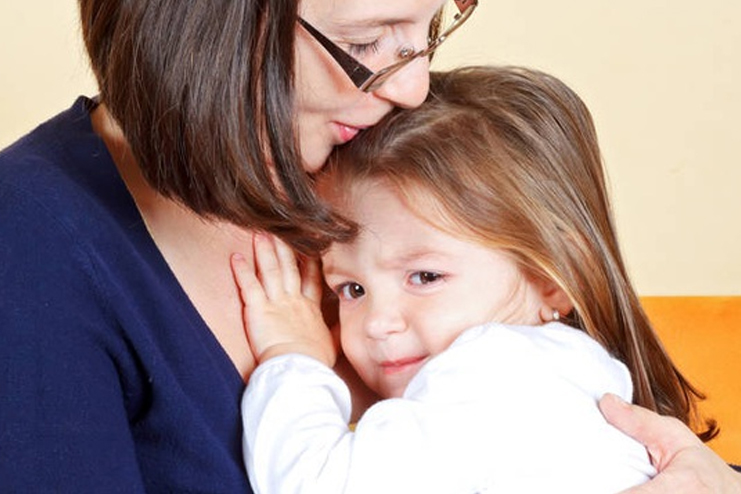
Here are a few tips to deal with the shy child:
1. Listen to them:
Kids always want the adults to hear their words. Kids want their feelings, thoughts, and opinions to be valued. Always allow your child to finish their words and do not interrupt in the middle. While speaking with your child use the language and ideas that can be easily understood by them. Use the instructions that your child can process easily.
2. Be a role model for your kid:
Parents and caregivers can be the best role models for the kids. Learn to behave properly in front of your kids. Kids will learn things from your attitude and how you behave with the others. Reduce the levels of stress and learn some self controlling techniques. Control your emotions and learn to manage them appropriately.
If you want to teach your kids anything, start practicing it yourself.
3. Praise their efforts:
Irrespective of the result, praise the efforts of your kid. Blaming them for the failure make them more concerned and nervous. Instead praise your child for the efforts that they have put to achieve the goals. Never compare your child with the others. The ability of each child is different and you should be able to recognize them and put them in the right path.
4. Focus on one to one interaction:
Take your kid to shopping and vacations and always encourage your kid to develop one to one interaction. Help your kid to enhance their eye contact.
5. Prepare your child for the new situations:
The most common thing is that all the kids are different and some kids can handle the situations better than other. Train your child as per their own set of strengths and weaknesses.
Explain your shy child in advance what they are going to see and experience. Ask your child to repeat the same to you so that you can get an idea about their level of understanding.
6. Be responsive to the needs of your child:
Avoid making your child feel shame for their behavior. In order to implement this, you can share the moments of your childhood where you felt shy and let them to understand the emotions behind those feelings. Encourage your child to use their own words for describing their feelings. Let them understand that they are free to express their feelings.
7. Help your child to build confidence:
Shyness makes your child to hinder their abilities and talents. Help your child to know their abilities and put them in the right path to enhance their skills.
Provide the opportunities that help your child to use their creativity. Encourage them to paint and do some crafts. Decorate the house with their crafts and make them to have more exposure to the practical knowledge. Allow your child to develop some ambition and help them to work for it.
How to treat Shyness?
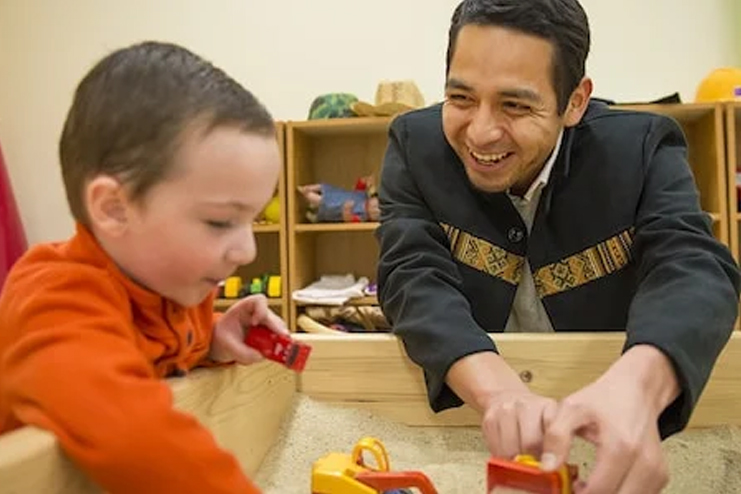
It is very essential to treat shyness for healthy development and the well being. Shyness can make the children find difficulty in forming the relationships and prevents them from achieving low grades at the school.
• Psychotherapy help the children to deal with their shyness and help them to be good at social skills.
• Relations techniques like deep breathing is one of the best ways that help the children to cope with anxiety, an underlying cause of the shyness.
• Medication is used in the rare instances to help the children get relief from the shyness.
When to worry for Shyness in child?
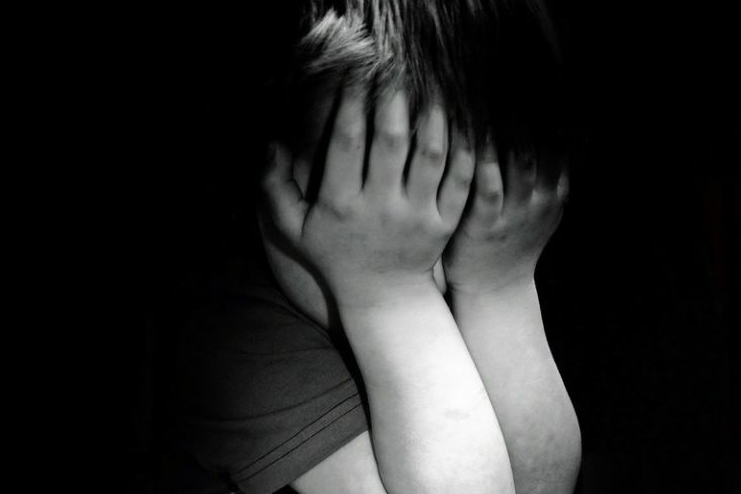
If you notice any of the following behaviors in your child it is better to consult the child development professional to check whether the development of your child is on track or not:
• If your child rarely shows gestures like pointing, reaching, showing, and waving
• Does not maintain eye contact
• Does not smile in response to your smile
• If your child is not familiar with the names of the people and body parts when your child hears them.
In conclusion, occasional shyness is more common in children but, persistent shy may prevent them from many important activities and hinder their cognitive development. Intervene at the right time and help your child to overcome shyness. Shy child benefits from the best affection from their parents.









































